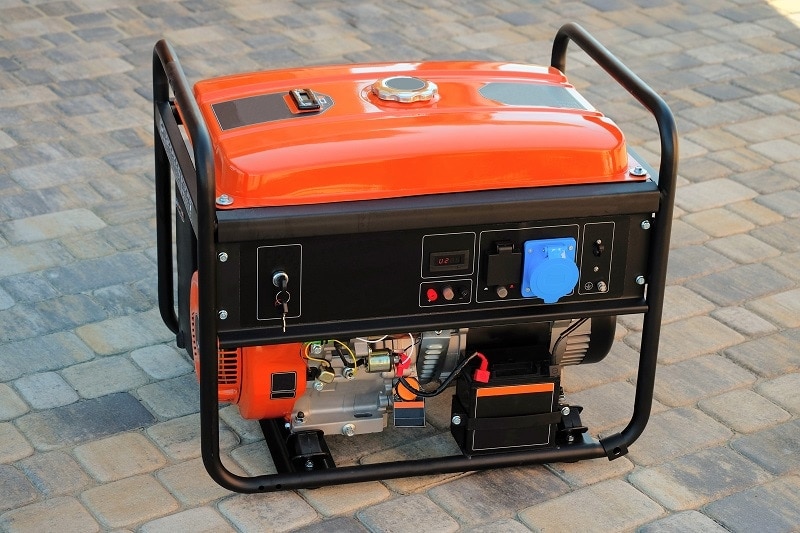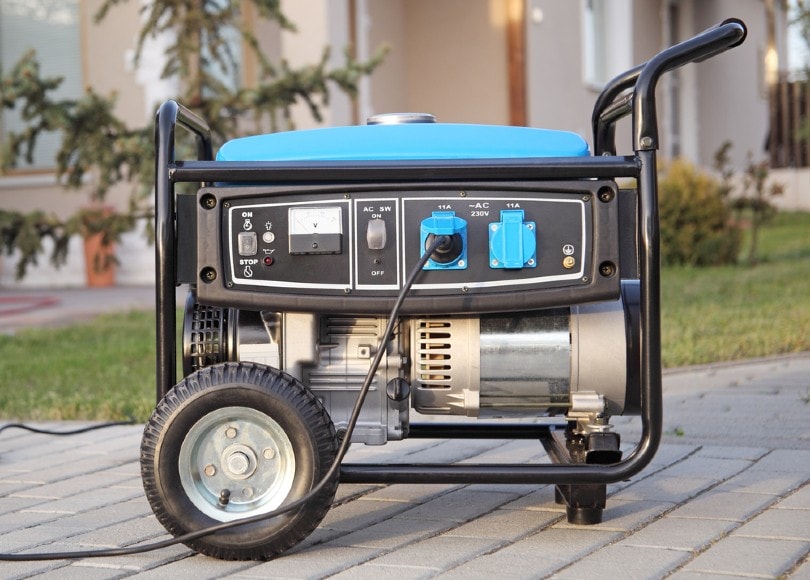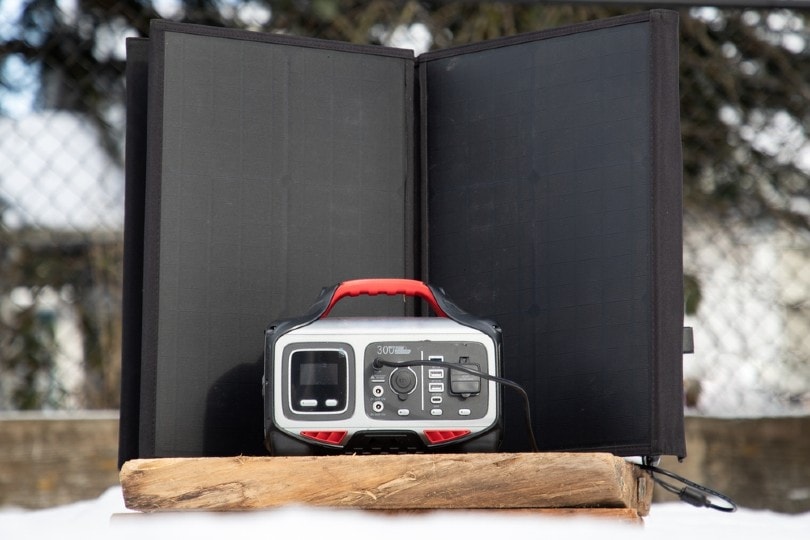Can I Run a Generator in the Rain? Risks, Precautions, & Tips
-
Pete Ortiz
- Last updated:

Running a generator in the rain can be dangerous. Do people run generators in the rain? Yes, they do. However, this is not advisable as it can cause some severe damage to both your properties and your life.
In this guide, we will answer this question in full, giving detailed information about running a generator in the rain, and whether or not it’s safe to do so.
Should You Run Your Generator in the Rain?
There is a higher tendency for a blackout to occur when the weather is bad. In the seasons of torrential, pouring rains, tornadoes, and hurricanes, electric power often gets affected. Therefore, it is very common to see people using generators during times like this.
Running a generator in the rain can be extremely dangerous. It can lead to appliance damage and even death. Here are the dangers of running your generator in the rain.
The 4 Risks of Running Your Generator in the Rain
1. Generator Malfunction
During rain, it is very likely for the ground to get flooded. If water seeps into the wirings and outlets of your generator, it can enter the fan and alternator and other important parts of the generator and cause your generator to stop functioning properly. Some of these damages are irreparable, and you might have to get a replacement.
2. Electrocution
You know that water and electricity are not the best of friends. Touching a wet generator while it is running can have a catastrophic effect. Also, standing in a puddle of water while operating the generator can be disastrous. If your hands are wet and you go to operate the generator, or you are trying to turn on the generator in the rain, it’s possible to get severely injured.

3. Possible Fire Outbreak
Water can get into the electrical outlets and cause a short circuit. This can cause sparks in the electrical wiring system and lead to a fire outbreak. A fire outbreak can, in turn, destroy your property and can even claim lives.
4. The Fuel Supply Will Be Cut Short
Water is denser than fuel, so if water gets into your fuel tank, then the water will rest at the bottom of the tank, automatically rendering your fuel useless.
The 3 Safety Precautions to Adhere to When Running Generators
To ensure that your generators do not cause any sort of problems for you and to extend the life of the machine, there are some safety precautions that you should follow.
1. Protect Your Generator From the Rain
Natural water like rainwater contains some minerals that ionize the water molecules, enabling the water to conduct electricity. A finger on your generator when it is wet is enough to get you electrocuted, nevermind operating it in the rain. Therefore, the safest practice is to keep the generator away from rain completely.
2. Keep the Generator Away From Your Home
Generators need an aerated environment to function properly. Keeping a generator indoors is very risky, even when the room is properly ventilated. When generators burn fuel, they emit toxins. These toxins can be very harmful, leading to suffocation and unconsciousness. Generators should be kept at least 10 feet away from your home.

3. Plugging Your Generator Into a Wall Outlet Is Dangerous
Plugging generators in wall outlets can lead to backfeeding. Back feeding is the flow of electric current in the reverse direction, either intentionally or unintentionally. When back feeding occurs, it can damage your electrical systems either temporarily or permanently. It can also electrocute a person who makes contact with the generator cords or the main power lines.
Tips to Run Your Generator Safely in the Rain
1. Keep the Generator Covered
Even if it is raining, the generator does not necessarily need to be exposed to the rain. Instead, it can be covered or enclosed. Now, this is tricky because generators generally need to be properly ventilated. This means that the construction of a shelter for a generator must be strategic, allowing airflow and shielding the rain. It must also be built with sturdy materials to make it less resistant to wind and other natural elements.
2. Keep the Generator System Dry
Even when the generator is not in the rain, it is still possible for moisture to gather in some areas, which can be equally dangerous. Ensure that you do not touch the generator with wet hands. Also, ensure that the area surrounding the generator is dry. A generator sitting in a puddle of water is a disaster waiting to happen.

3. Keep Cables Hidden
If you are running cables from the generator to the source of power, then you need to ensure that the cables are intact. If the cables are frayed or exposed and they are open to the elements, there will be higher chances of an accident occurring.
4. Get a High-Quality Generator
Generators generally do not function under their best capacities when moisture is involved. However, a high-quality generator will withstand challenges more than a low-budget generator. It is best to purchase a generator that you can vouch for during difficult situations.
Conclusion
We understand how important it might be for you to run a generator in the rain. However, if the weather conditions are extreme, it is smart to avoid running the generator. If you choose to do so, try and make sure your generator is dry at all times.
Featured Image Credit: Virrage Images, Shutterstock
Contents


